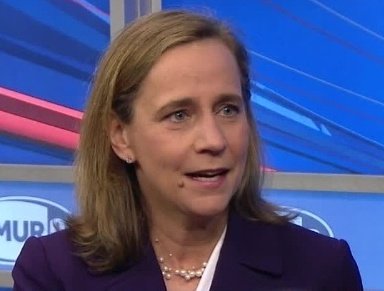Craig Hits Ayotte on Opioids, But Benefited Financially From Drug Crisis

Joyce Craig injected opioids into the governor’s race but may end up in reputation rehab after her GOP opponent’s counterattack.
On Monday, Democrat Craig launched a new attack ad targeting Republican Kelly Ayotte over the opioid issue. It’s the first time Craig has raised it in the general election, though she hit her primary opponent, Executive Councilor Cinde Warmington, hard over her ties to Purdue Pharma.
But as Warmington pointed out at the time, Craig has her own connections to New Hampshire’s drug crisis that benefitted her financially.
Craig’s anti-Ayotte ad accuses the former New Hampshire attorney general of letting “the companies responsible for this crisis… off the hook” by “refusing to prosecute a leading opioid maker behind the crisis.” It also claims Ayotte “cashed in” by “joining the board of a major opioid distributor.”
The Ayotte campaign notes that as attorney general, Ayotte did prosecute one of America’s largest drug companies, and the state eventually participated in a multi-billion-dollar settlement from Purdue Pharma. And as a U.S. senator, Ayotte helped deliver $1 billion in funding to tackle the opioid crisis.
As for that “major opioid distributor,” the company referenced in the Craig attack ad is Blink Health, an app that helps consumers find low-cost generic prescription medications of all kinds, similar to GoodRx.
Rather than argue, however, the Ayotte campaign picked up where Warmington left off during the Democratic primary. It hit Craig on the money her family has collected from her husband’s high-dollar defense of some of New Hampshire’s worst drug criminals.
The Ayotte ad also slams Craig’s term as mayor of Manchester as the number of opioid-related overdose deaths hit record highs.
“Joyce Craig let the Manchester drug crisis explode and made a fortune off her family’s work, defending criminals, traffickers, drug dealers, gangs. Craig cashed in off all of them,” the ad claims.
At issue is the work her husband Michael’s law firm, Craig & Gatzoulis, has done representing drug dealers and related criminals in New Hampshire courts.
“If you are charged with large-scale trafficking or simple possession of a controlled substance, the attorneys at Craig & Gatzoulis will draw on their experience as prosecutors to help you fight the charges,” according to the firm’s website.
Michael Craig and his partner Arthur Gatzoulis have represented a rogues gallery of defendants, like Coleman Marcus, who was convicted of selling fentanyl and heroin in 2018; Aweis Khamis, who was convicted of gun charges in 2019 for shooting up a Manchester diner; and accused Manchester rapist Harold Frost, who was busted in 2008.
Warmington pointed out during the primary that “as mayor, Craig signed a form every single year, notarized and under oath, that she had a personal financial interest in the law firm that her husband is participating in.
“I don’t know what that financial interest is,” Warmington said in the WMUR debate last month, “but she had a personal financial interest profiting off the trafficking of drugs in her city.”
Warmington also said Craig was on the attack because she couldn’t defend her record as Manchester mayor, “with overdose deaths up 52 percent per capita.”
Craig would not respond to requests for comment about her new ad or the opioid issue.
Dropping a new ad with a new attack on a topic that hasn’t been part of the campaign is an unusual move, political professionals say, particularly when the issue isn’t a natural fit with the race’s previous narrative. Ayotte’s time as a prosecutor is widely viewed as an asset, and a “weak on crime” attack now, without a major new development in the race, is viewed by some as a sign the Craig campaign is struggling.







